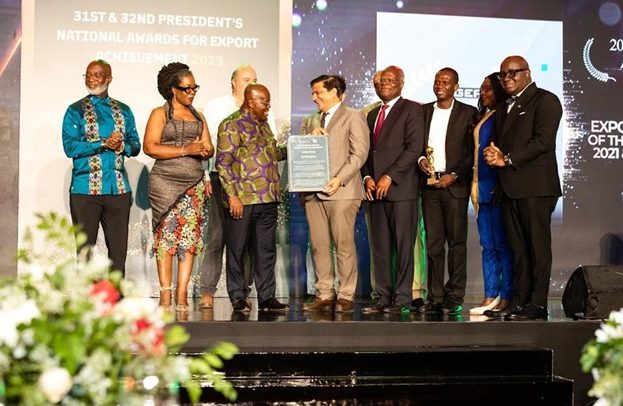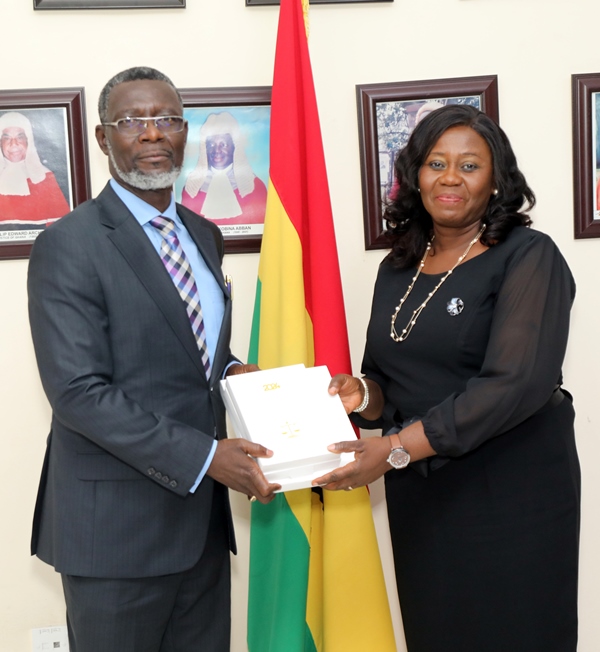
Ms Otiko Afisa Djaba,(middle) interacting with Mr Kwadwo Appiagyei-Atua.With them is Ms Josephine Nkrumah,Chairman NCCE
A five-day training course on improving access to justice for Persons With Disabilities (PWDs) is underway in Accra.
Organised by the School of Law of the University of Ghana (UG), Legon, in collaboration with Open Society Initiative for West Africa (OSIWA), the course is aimed at adopting a right-based approach in enhancing inclusivity and provide comprehensive access to justice for persons as victims of crime and abuses.
Opening the event yesterday, Minister of Gender, Children and Social Protection, Ms Otiko Afisa Djaba, said despite the protection afforded under international human rights law, particularly the Convention on the Rights of Persons with Disabilities (UNCRPD) and the Ghana Disability Act, PWDs in the country continue to face obstacles in accessing justice.
This, she said was as a result of legal or policy, attitudinal, information and communication, physical and economic barriers.
In order to address these challenges, the ministry, she said, had developed certain interventions including the Ghana Standard Accessibility Designs (GSAD) for the built environment.
Ms Djaba explained that the ministry was to provide specifications for policy makers, implementers and service providers to ensure quality and non-discriminatory services and contribute to universal accessibility in the built environment.
She said the Ministries of Works and Housing and Roads and Highways as well as the Town and Country Planning Department, now Land Use and Spatial Development Authority, were being engaged to mainstream the provisions in the standard into Ghana's building regulations to become requirements for the award of contract.
Additionally, the National Council on Persons with Disability (NCPD), the minister said had collaborated with the Disabled People's Organisations and other stakeholders to design draft guidelines on the use of appropriate and accessible forms of communication including different languages, displays of text, Braille, tactile communications, large print, use of sign language interpreters among others, which would require both public and private institutions to provide accessible information and services in line with the guidelines.
The framework and strategies on disability mainstreaming in Metropolitan, Municipal and District Assemblies (MMDAs) have been developed to make disability issues an integral part of the day-to-day activities of all institutions, Ms Djaba added.
She appealed to all relevant institutions that play a role in justice delivery including the police, lawyers, service providers and the courts to design programmes in line with their mandate to address the needs and concerns of PWDs.
Dr Kwadwo Appiagyei-Atua, Senior Lecturer, School of Law, UG, said the course was to identify the scope of the right to access to justice for PWDs and find barriers that impedes access to justice.
The course, he said, would further produce solutions to the identified barriers and engages PWDs in designing laws and policies aimed at equality and inclusion.
National Vice President of Ghana Federation of Disability, Mawunyor Yakor Dagbah, said it was time Ghana implemented policies and strategies that create the required environment for PWDs to seek justice in light of abuses, and urged state actors to take a leading role in ensuring PWDs were provided equal opportunities to achieve their goals and aspirations.
Read Full Story





















Facebook
Twitter
Pinterest
Instagram
Google+
YouTube
LinkedIn
RSS